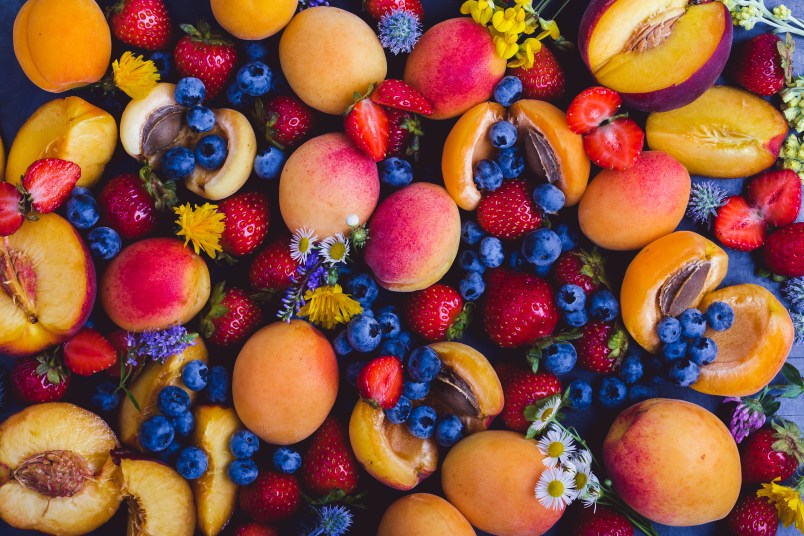Adding More of This to Your Plate Can Lower the Risk of Cognitive Decline by 38%
A half of a serving helps you keep your memory.

As we get older, it becomes more and more important to prioritize our cognitive health. Altering one’s diet and lifestyle are key ways to do that, and emerging research continues to show us how best we can keep our brains functioning for the long haul. Most recently, a study revealed that adding flavonoids — which are plant compounds known to have anti-inflammatory and antioxidant benefits — to our plate each day could lower our risk of cognitive decline and help us keep our memory strong.
Flavonoids and Brain Health
A team of researchers from Harvard’s T.H. Chan School of Public Health set out to determine how a diet rich in flavonoids could affect brain health. The study, which was published in the journal Neurology, included nearly 50,000 women who were of average age 48 and 27,842 men who were of average age 51 at the start of the study. Over the course of a 20-year follow-up period, the participants completed questionnaires about how often they ate specific foods. The researchers calculated each persons flavonoid intake based on how many flavonoid-rich foods they ate and how often.
The study participants were also asked to evaluate their own cognitive skills twice during the trial. They answered questions like, “Do you have more trouble than usual remembering recent events?” and, “Do you have more trouble than usual remembering a short list of items?” Using this data, the scientists made assessments about the subjects’ long- and short-term memory.
According to the study results, people who ate more flavonoids in their diet had a lower risk of cognitive decline. In fact, the group of folks who consumed the most flavonoids were found to have had a 20 percent reduced risk of deteriorating brain function when compared with the people who consumed the least.
The team analyzed their data further to find out which individual flavonoids had the most benefit. Flavones, which are found in spices and yellow or orange fruits and vegetables, appeared to have the strongest protective qualities. People who ate these foods were shown to have an impressive 38 percent reduced risk of cognitive decline. According to the researchers, that’s the equivalent of being three to four years younger! Another type of flavonoid called anthocyanins (which are found in blueberries and blackberries) were also associated with a 24 percent reduced risk. Those are some serious brain benefits!
“The people in our study who did the best over time ate an average of at least half a serving per day of foods like orange juice, oranges, peppers, celery, grapefruits, grapefruit juice, apples, and pears,” said study author Walter Willett, MD, DrPH, in a press release. “While it is possible other phytochemicals [plant chemicals] are at work here, a colorful diet rich in flavonoids — and specifically flavones and anthocyanins — seems to be a good bet for promoting long-term brain health. And it’s never too late to start, because we saw those protective relationships whether people were consuming the flavonoids in their diet 20 years ago, or if they started incorporating them more recently.”
So if you’re getting older and you want to give your brain a boost, remember that all you have to do is incorporate some more colorful fruits and vegetables into your diet, perhaps favoring ones like oranges, peppers, blueberries, and blackberries. Now doesn’t that sound like a yummy way to keep your memory strong?
















